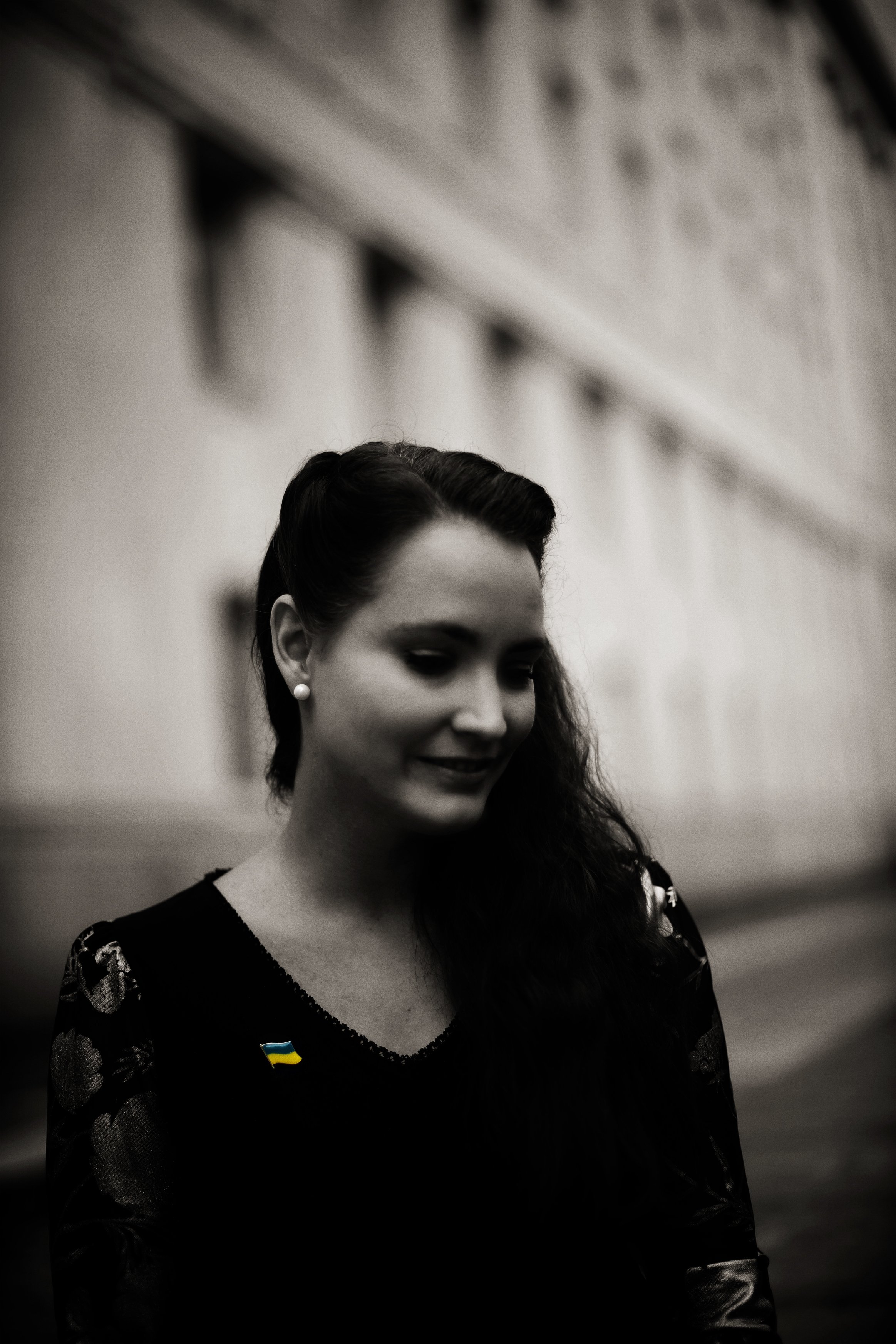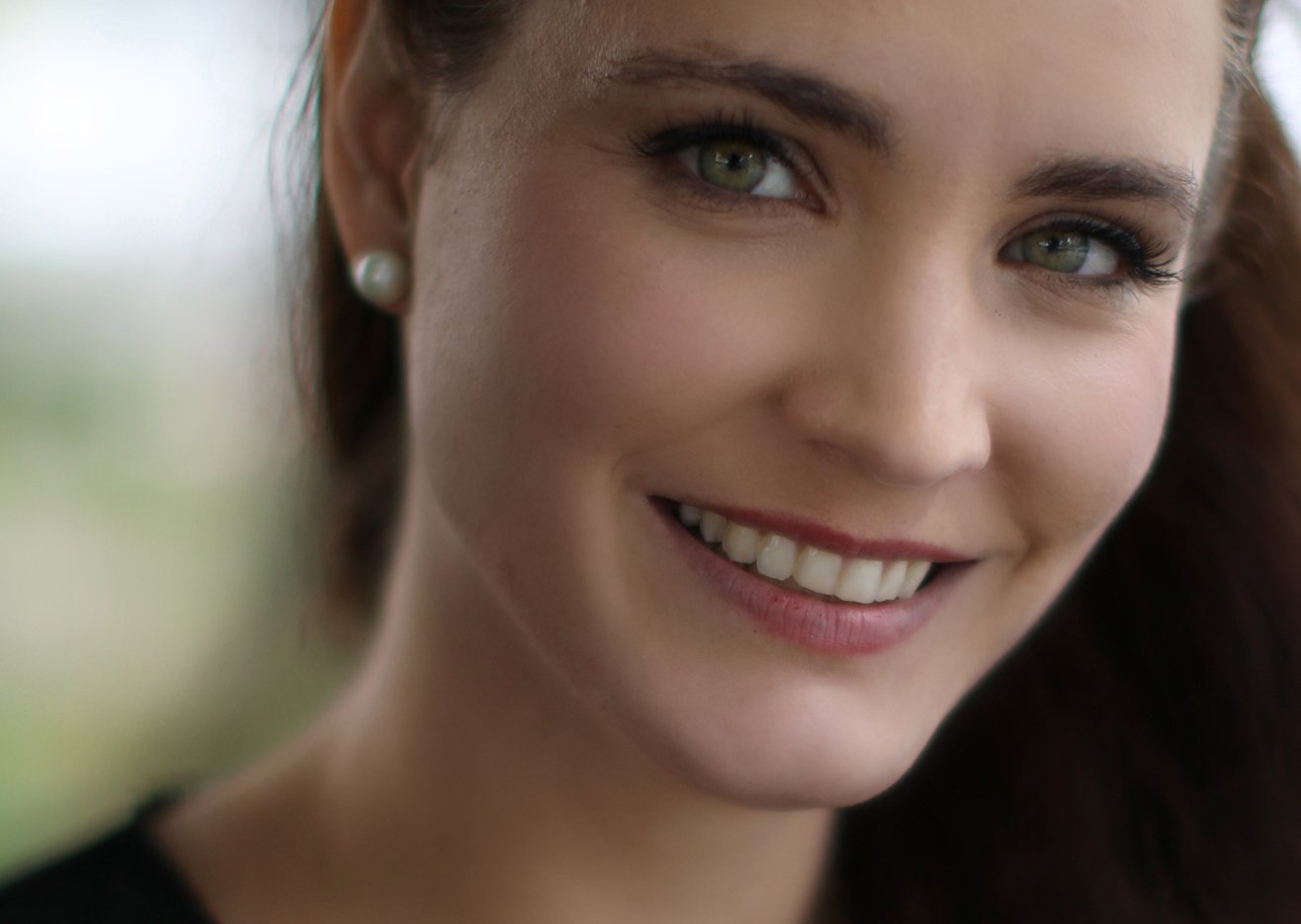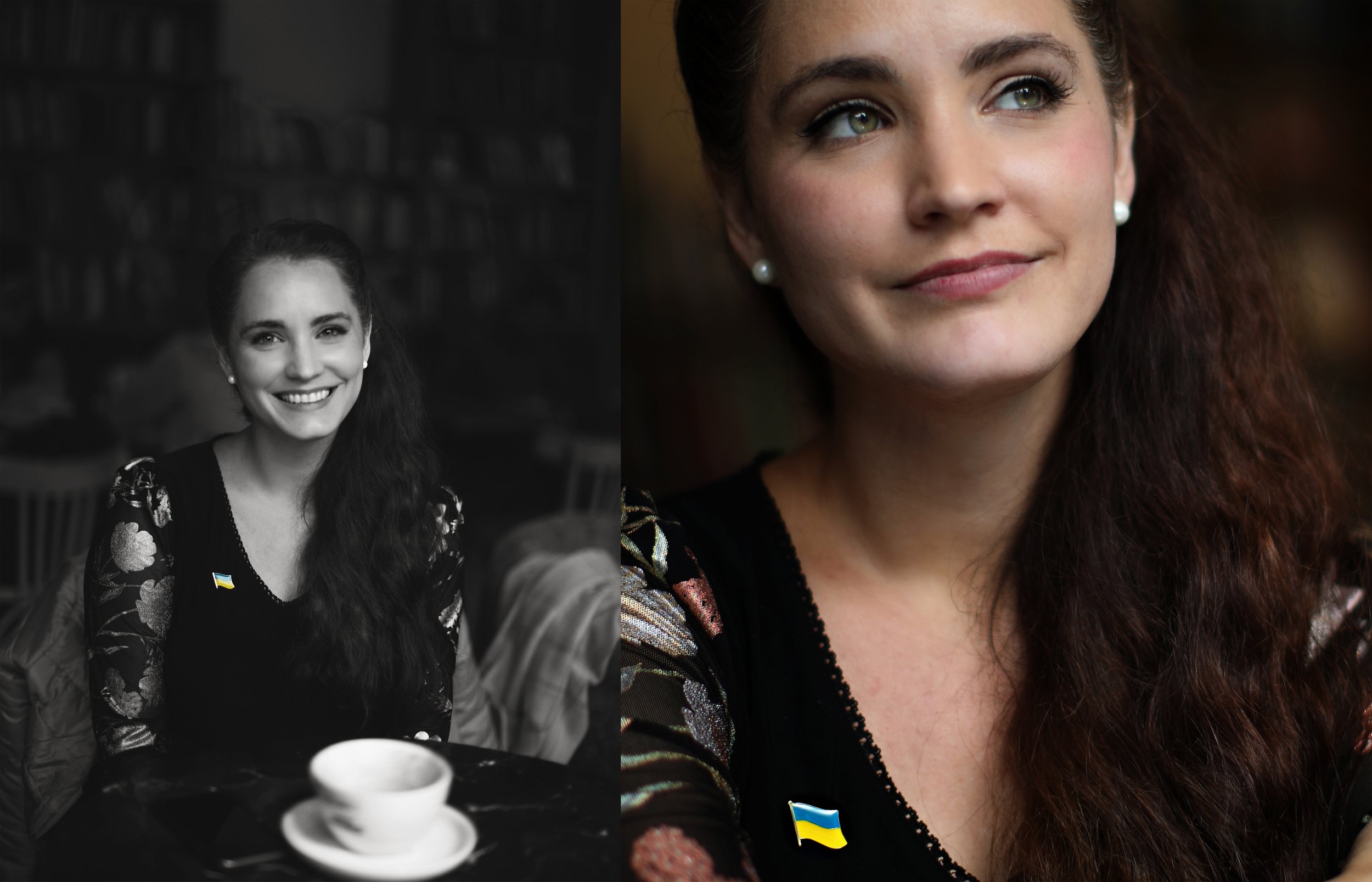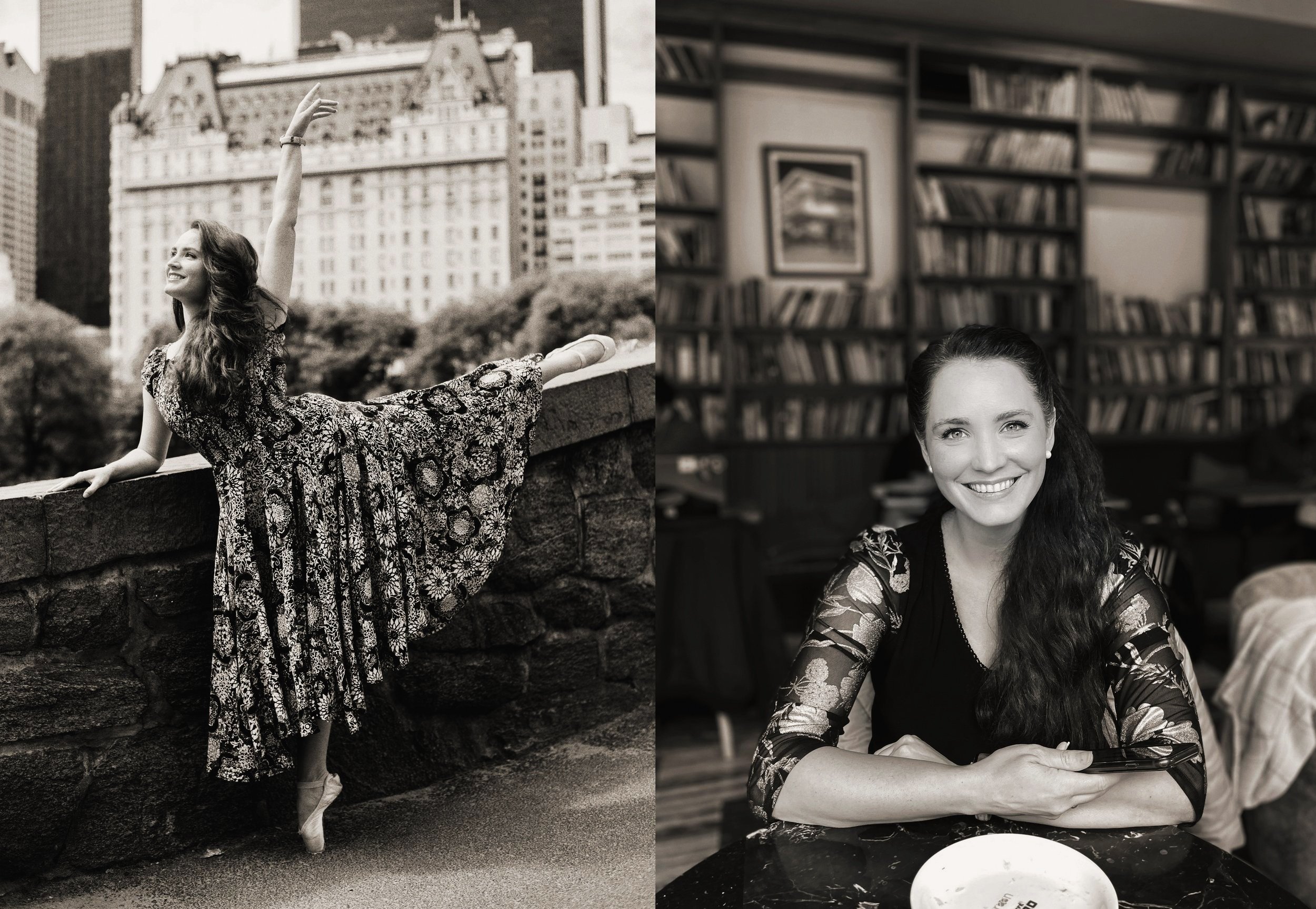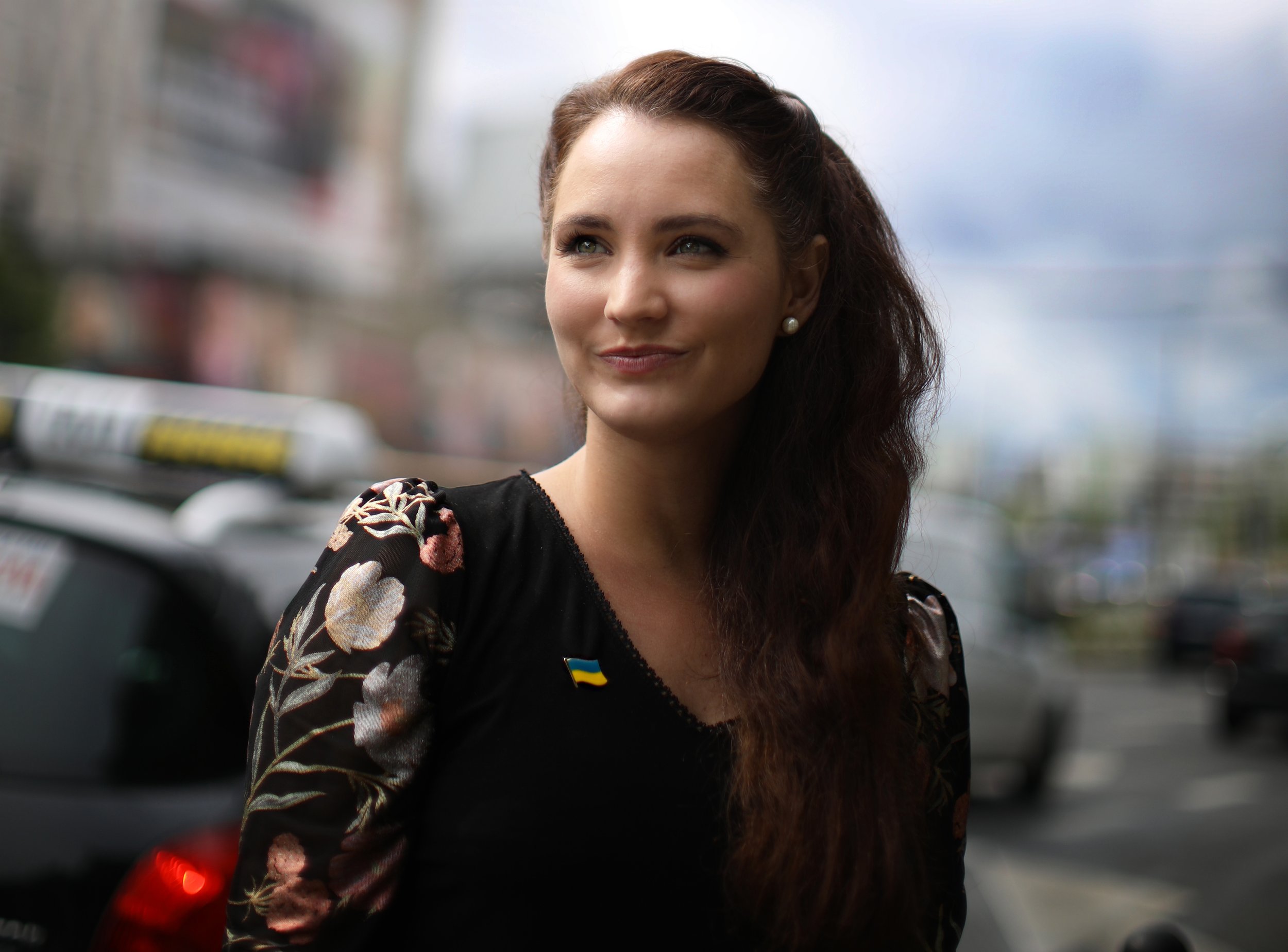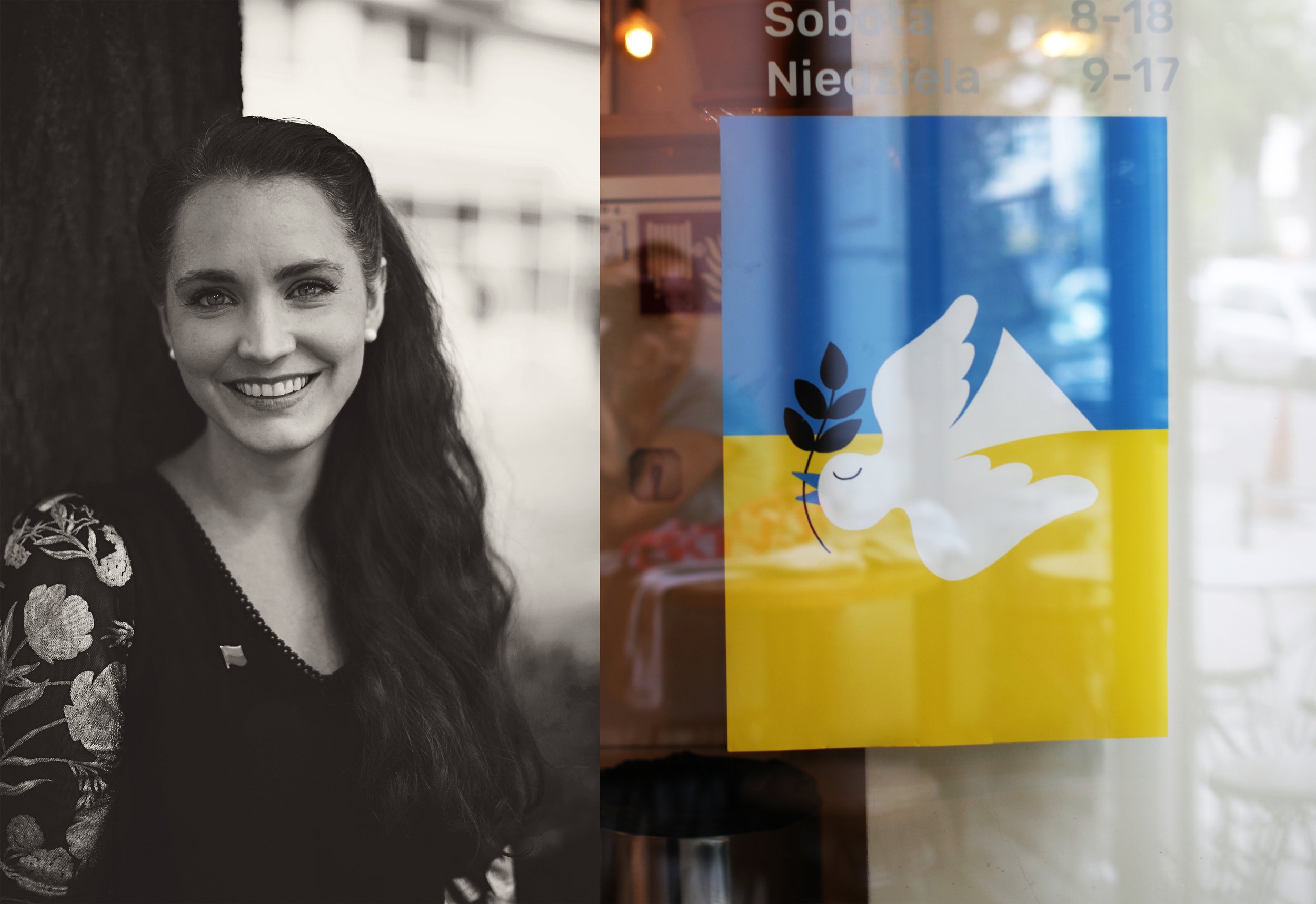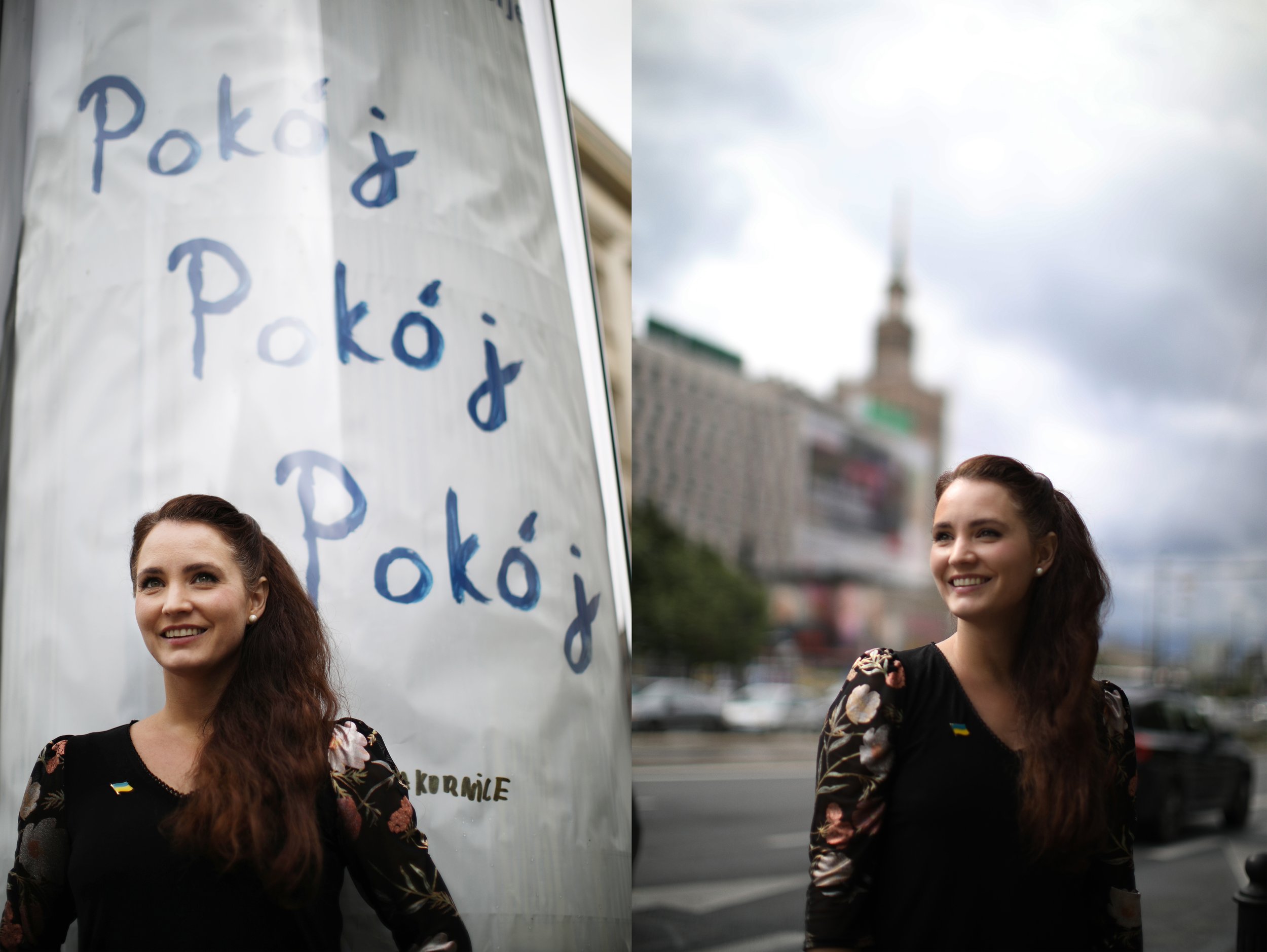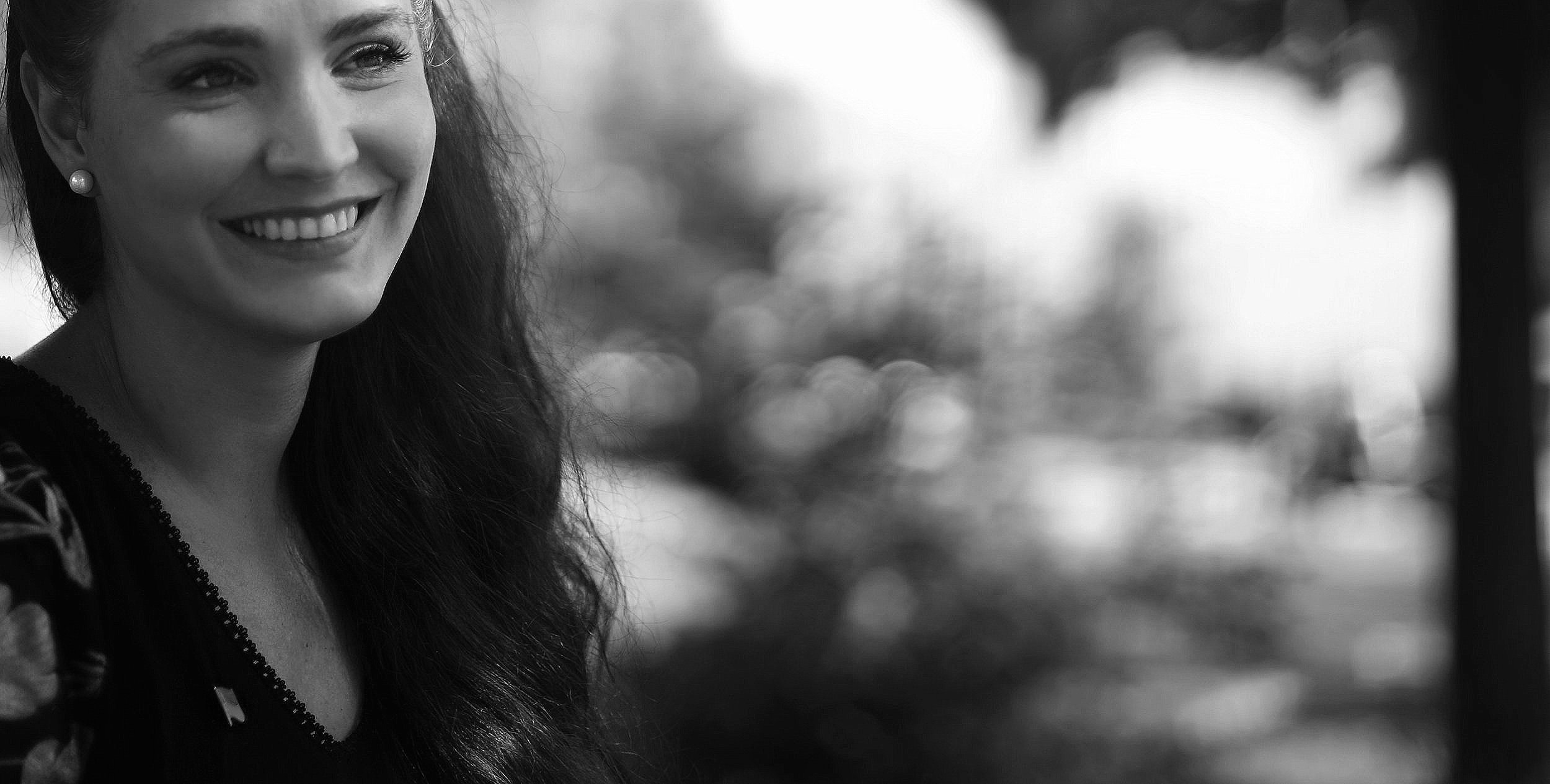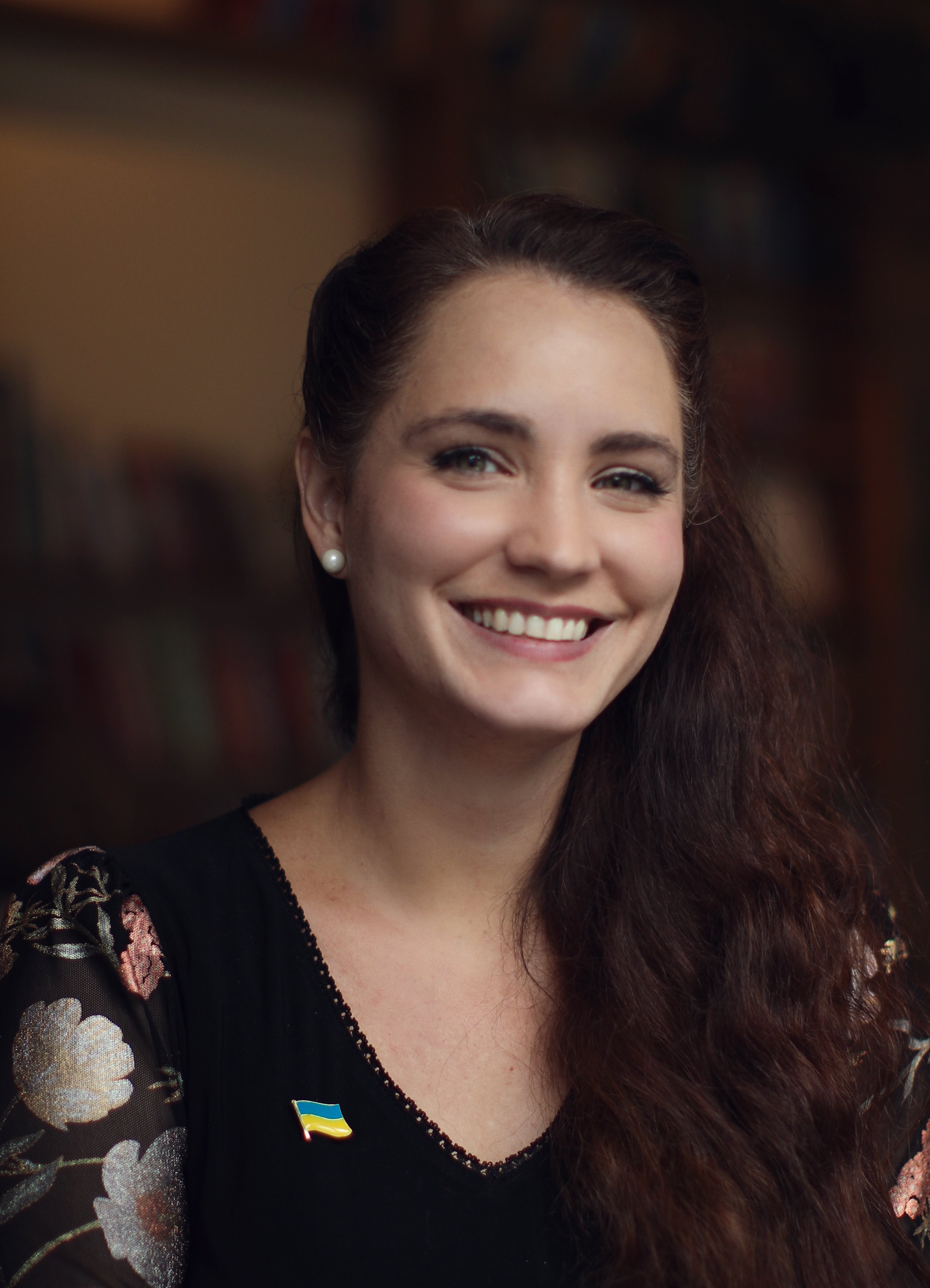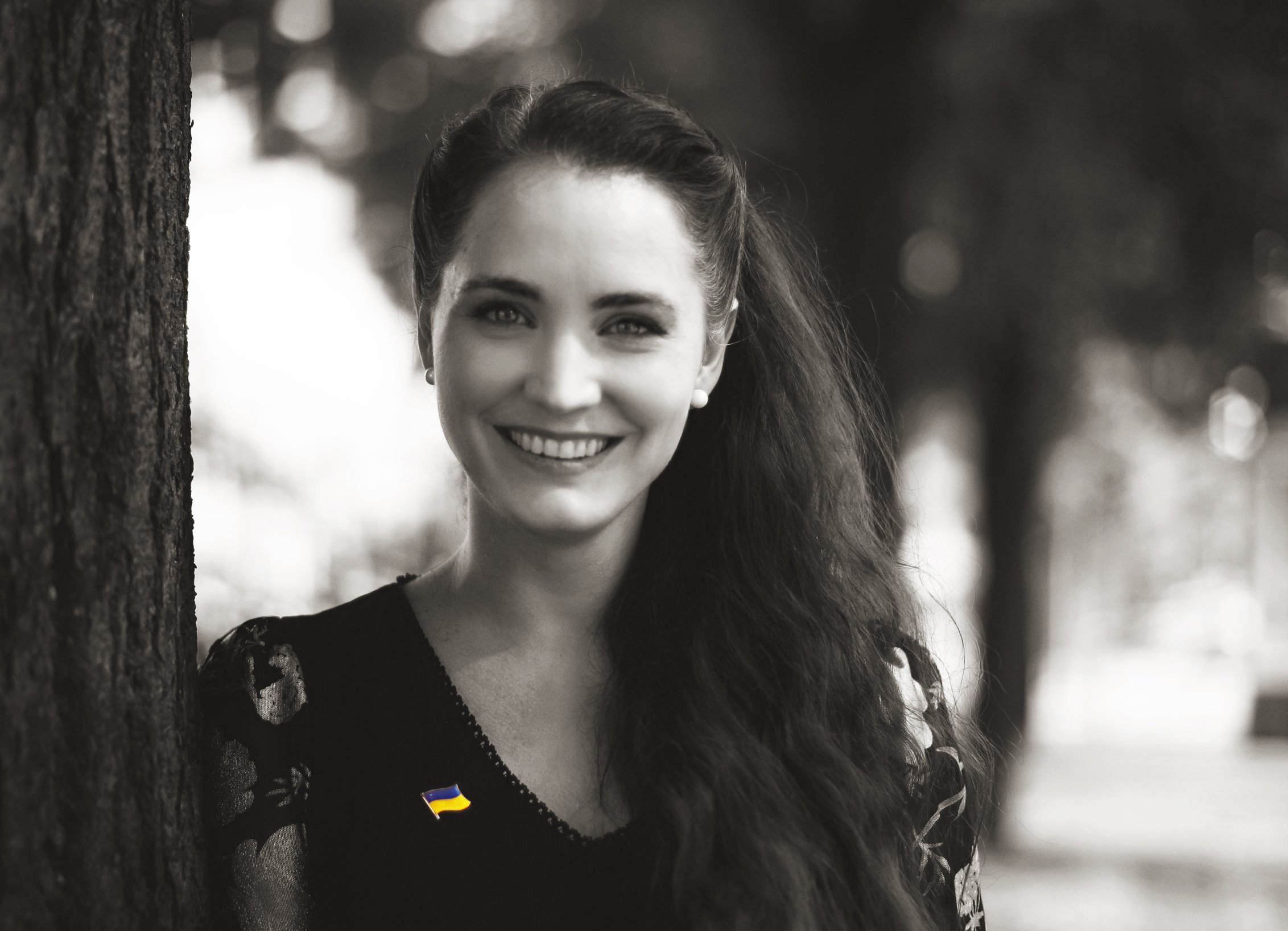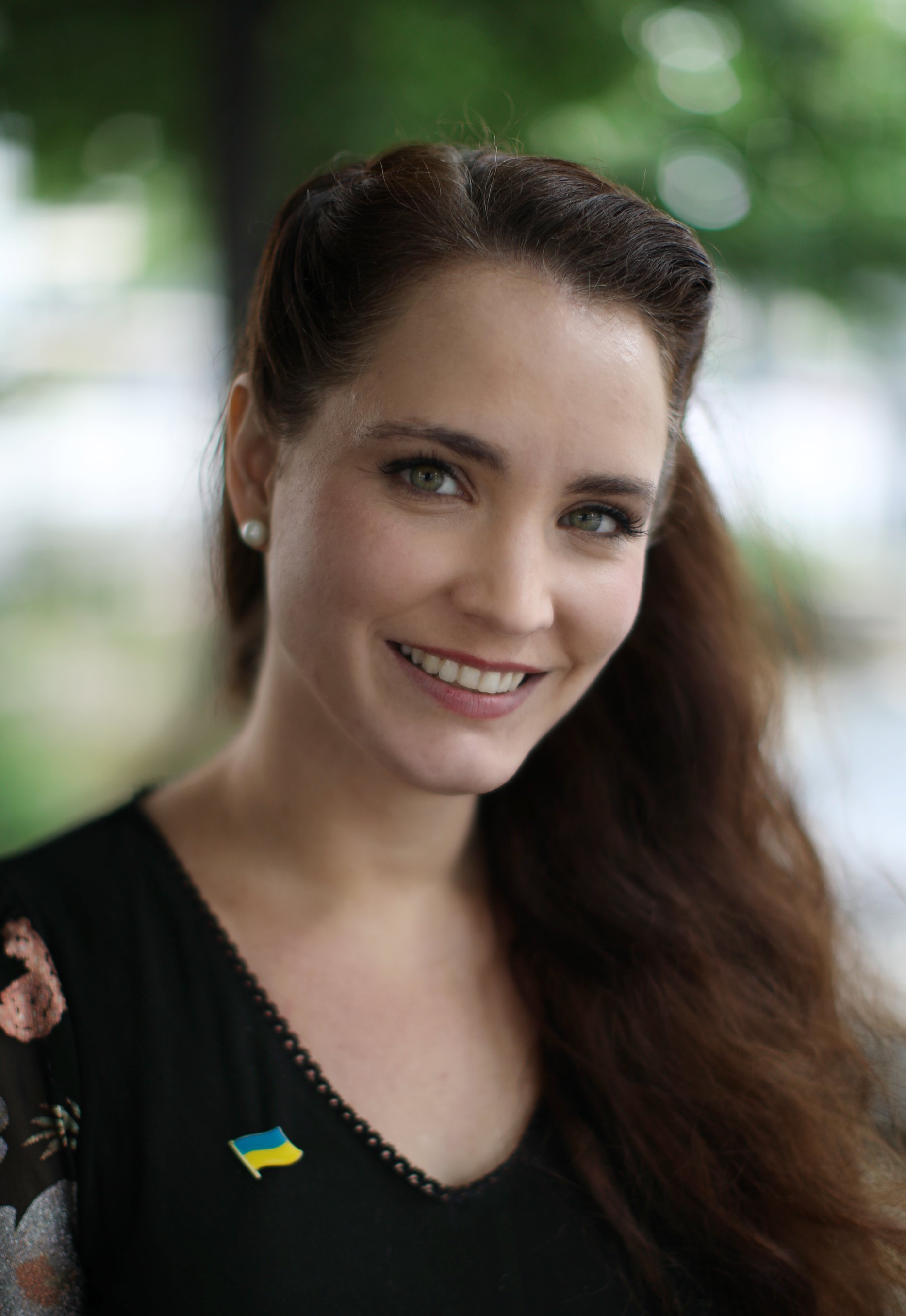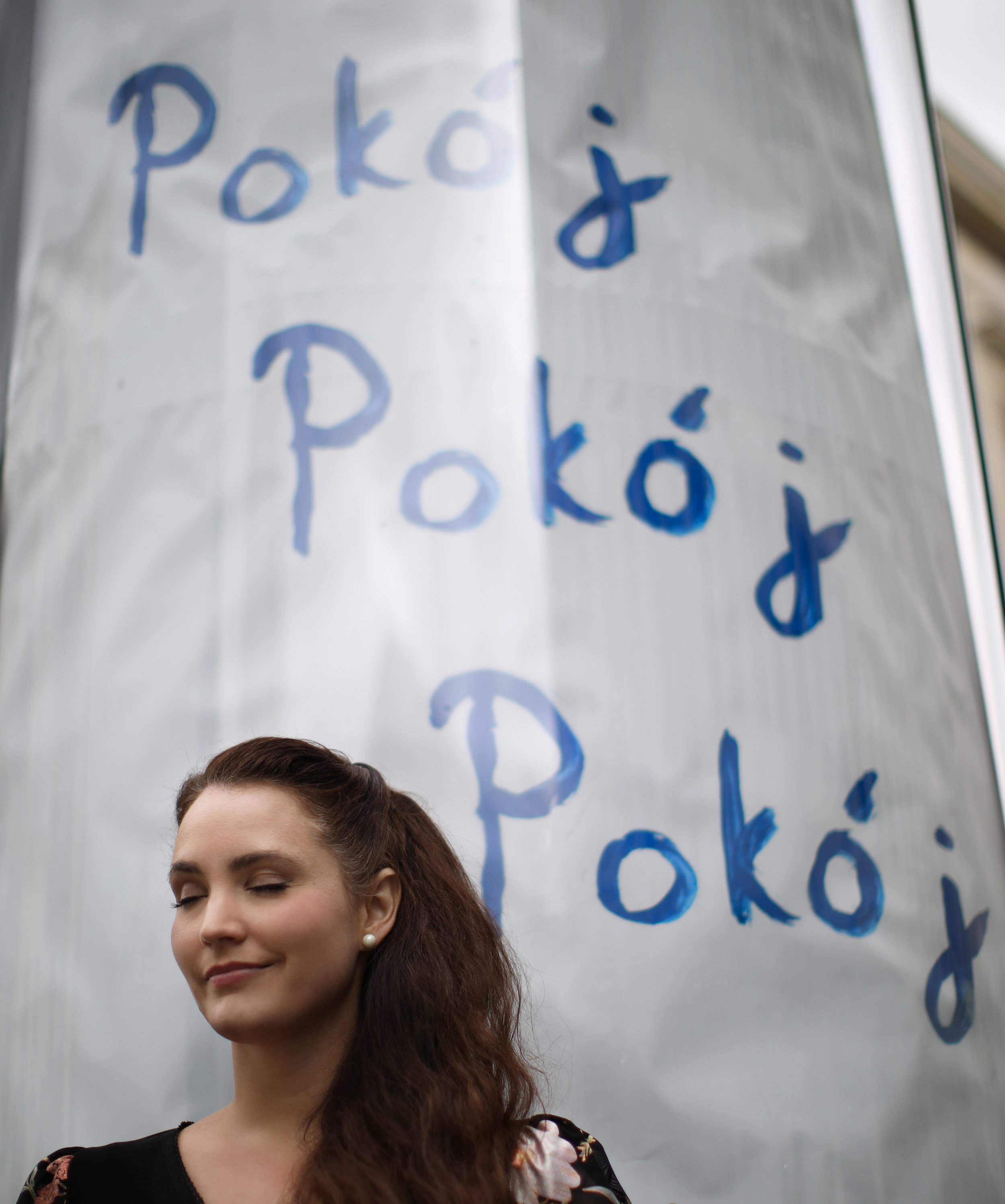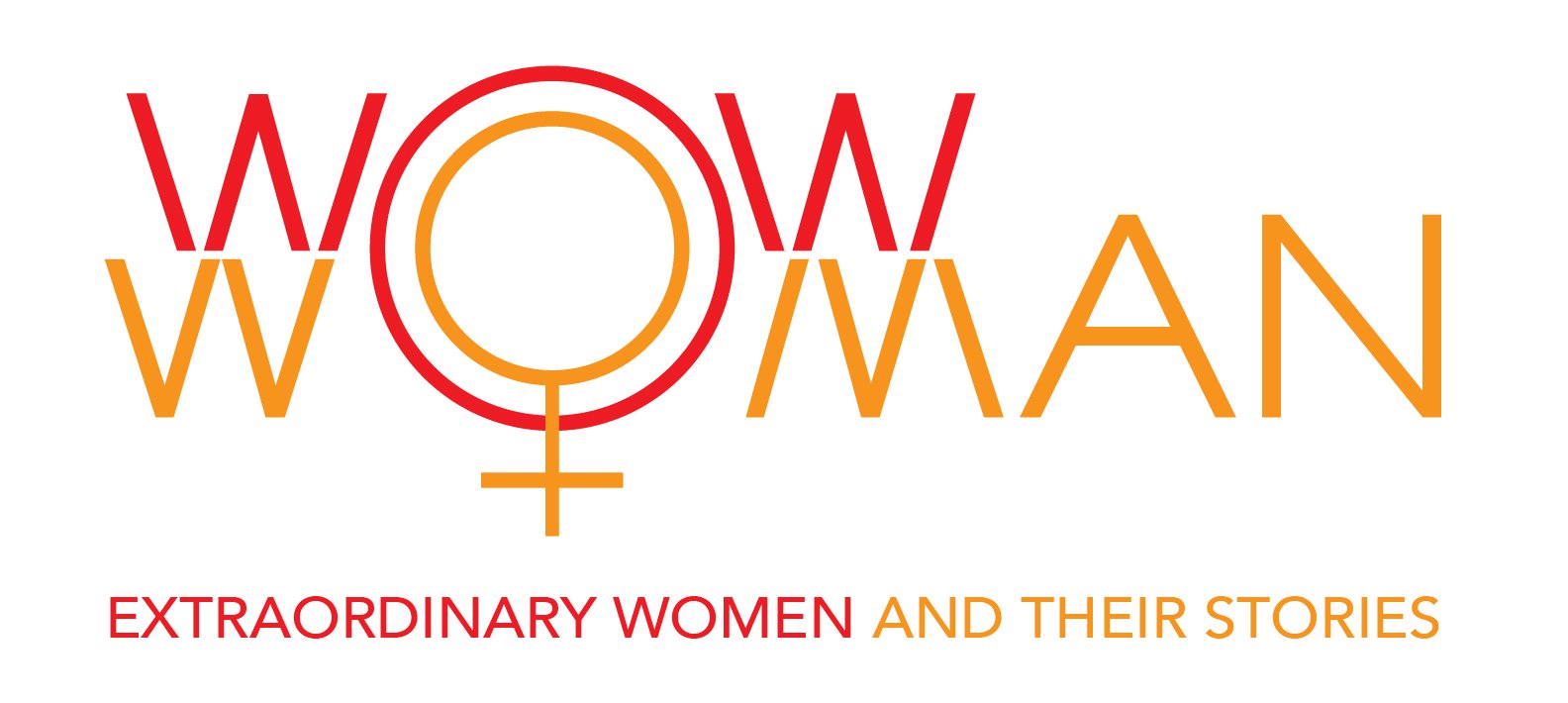Volunteer, Ukraine Aid, Composer, Conductor, Polyglot, Actress, Professor, Warsaw, Poland
On February 24th, 2022, Russia started bombing peaceful Ukrainian cities. The killing and destruction forced millions of Ukrainian women and children to flee into the neighboring Poland and other European countries. I was in Poland during that initial month, witnessing thousands of Polish volunteers organizing the best way they knew how, truly a grassroots undertaking. I’ve personally stood side by side with the men and women, emotionally affected by the sheer numbers of families arriving at the border and moving onward, toward Warsaw, Krakow and other cities. Polish and international volunteers were mobilizing, connecting to one another and constantly reexamining how they could effectively use their talents.
In the two months I spent in Poland, I seldom encountered Americans, especially from Hawaii, so when I first met Ms. Erica Glenn, I was genuinely curious if she had any connection to Ukraine. Upon hearing her story, I could initially only muster a heartfelt (and a tearful) thank you followed by a slew of questions.
Ms. Glenn entered Europe in the midst of the worst humanitarian crisis seen since the Second World War; this time however the devastation was caused by Russia. Erica’s connections to Ukraine, especially to the currently occupied Mariupol’ and Donbass regions in the East, run deep. She lived in these cities before, had the chance to embed in the Ukrainian culture, created meaningful friendships and mastered the Russian language spoken in that part of Ukraine. When Russians invaded, fueled by her love for Ukraine, Erica dedicated months of her life to settling in Poland, brushing up on her Russian and studying both Ukrainian and Polish needed for establishing deeper connections with Ukrainian refugees as well as their Polish hosts.
With Erica’s impressive professional background (a singer, conductor, professor, researcher) she also had to possess the nerves of steel to be able to apply her talents in the midst of a humanitarian crisis of such proportions. Ms. Glenn’s typical day goes something like this: she enters a shelter full of Ukrainian women and children, kids are running around, slumped teenagers are scrolling through their phones, strollers are filling the hallways, the sleeping cots are separated by sheets for privacy, grandmothers clustered near the WIFI spots. Erica gathers the kids and creates a musical circle, leading the little ones in a sing-along. With this, she gifts a moment of peace for the stressed mothers, a moment of community and belonging for the children and the elderly. If a piano was donated to the shelter, Erica plays and sings Ukrainian songs. People gather. They sing. They weep. They hold each other and connect. This is Ms. Glenn’s contribution in a humanitarian crisis; this is her superpower.
Time and time again, WOW women like Erica remind me that in parallel to the horrific acts of hatred by the Russian Federation toward Ukrainians, there exist equally powerful and exponentially stronger acts of compassion and love. Both carried out by complete strangers, only one act will advance us as humans and will be remembered as honourable and courage-filled.
1. Name
Erica Kyree Glenn.
2. Where is your hometown?
Pleasant Grove, Utah.
3. What is your profession/career/title/self-label/designation? What does your average day look like?
I am a composer-conductor-actress-professor-researcher-polyglot! I love music and languages and people. During the academic year, I conduct two choirs and teach private voice, conducting, and composition at Brigham Young University - Hawaii on Oahu's beautiful north shore. During the summers, I typically travel on research and/or language grants. (I have spent meaningful time in Bulgaria, Romania, Ukraine, Russia, and Georgia.)
This summer I'm conducting research and doing humanitarian work among Ukrainian refugees in Poland on a Fulbright grant. My average day looks something like this: In the morning, I hop on a tram for three hours of intensive Polish language courses, and then I volunteer at either the Woloska Center (a women/children's shelter where I teach music classes), the Modlinska EXPO (a large first reception center for refugees where I purchase necessary supplies and lead Ukrainian-language sing-alongs), or the train station (where I play with kids in the children's center or serve meals with World Central Kitchen). In the evenings, I typically have Zoom meetings with international relief organizations or rehearse for a concert series I've organized featuring outstanding refugee musicians from Ukraine.
4. What did you study in school?
I hold a Bachelor's in Musical Arts, in Music Theory & Composition from Arizona State University, an MM in Composition from Longy Conservatory, an EdM in the Arts in Education from Harvard, and a DMA in Choral Conducting from Arizona State University.
Images provided by Erica Glenn.
5. What was the journey like to get where you are (in life and career-wise)? Write about some of the achievements that you are most proud of. What was the moment for you that changed your life (in your personal life and/or career?) that set you on the current path in life? What did you do before the war in Ukraine, and why and how did you start helping Ukrainian women?
At age 21, I served a mission for my church in Eastern Ukraine and lived in Mariupol, Kharkiv, and Donetsk for almost a year and a half. I connected with people instantly through my piano playing and singing, and I fell completely in love with the Russian and Ukrainian languages and Ukrainian culture. Since then, my life has followed lots of unexpected, circuitous paths that keep bringing me back to Eastern Europe. I have
studied music as a therapeutic tool for Eastern European orphans with Reactive Attachment Disorder.
run a performing arts department at an international school.
taught in Hawaii among students from over 72 countries.
researched the lost history and music of Stefania Turkevych, Ukraine's first female composer.
“My goal as a scholar is to help strengthen Ukraine's cultural identity as a defense against Russia's soft power tactics.”
When war broke out in February 2022, I was devastated. I wrote an article for USA Today about the panic I felt trying to connect with my friends who had fallen silent when Mariupol was blockaded and about my friend, Anya, who finally escaped. Most of my dearest friends in Ukraine are women, so I became very involved in evacuation efforts and supporting mothers and children. I was originally supposed to be in Lviv, Ukraine for my Fulbright grant, and when I was reassigned to Poland because of the war, I shifted my attention to the role of music in the lives of Ukrainian refugees. Music is powerful and therapeutic.
Images provided by Erica Glenn.
So far, I've worked in a women and children's tent at the Medyka Ukraine-Poland border crossing, led music classes with children in shelters in Poland and Ukraine, accompanied an opera singer from the Kharkiv National Opera at concerts throughout Warsaw (our serendipitous connection during one of my visits to a Ukrainian shelter is captured here), and interviewed almost 40 refugees (mostly women) about their experiences with music. It is an honor to witness the strength of these women firsthand.
6. How is your life different from what you pictured at 20?
When I was 20, I never would've guessed that I'd have any connection to Eastern Europe! I didn't know I would study Russian, Ukrainian, and Polish. I did know from a young age that I wanted to make music professionally (composing, performing), but I didn't realize I'd become so invested in the music of Eastern Europe or the therapeutic properties of music.
7. Was there a time when life knocked you down or out and how did you get back up on your feet?
This happens to me all the time! I'll make plans (sometimes over the course of months or even years) and then have those plans completely upended in an instant. However moments like this tend to lead me to new and interesting places. When COVID first hit, for example, I had just graduated with my doctorate in choral conducting. . .and suddenly there were no opportunities available for choral conductors. Singers were "super-spreaders" of the virus, and there were no jobs anywhere. So I regrouped, figured out how to lead rehearsals effectively online, and founded a company called Virtual Choir Conductor to lead other choral organizations through the process of going digital and remaining viable through the pandemic. Without these experiences, I never would have landed my current position at Brigham Young University - Hawaii.
8. Advice for other women?
You can do absolutely anything you set your mind to, as long as you are willing to put in the necessary work and never give up. Don't let anyone but you define who you should be--even other women. Don't get caught up in competitive games; just be the best version of "you" that you can possibly be. “Don't be afraid to shine brightly and to feed the light of others”
9. Knowing what we know now in a current political climate, can women be "all that we can be" in today's world? What is the way forward, as you see it, for "feminist values"?
I have found that, for me, the best way forward is to not overthink the situation. All any of us can do is be ourselves in the best way we know how--the way that feels right for us. Trust and follow your intuition. Don't place limits on what you think you can accomplish. Lift and support other women. And remember: Nobody can be everything all at once, and that's okay.
10. Where in the world do you feel “tallest” (i.e. where is your happy place)?
Inside my own head in the middle of a creative state of flow or engaging in collaborative music experiences.
11. What extracurricular activities/hobbies are you most proud of? Why?
I'm proudest of the students I've worked with (at every level, preschool through college) and the remarkable things they are accomplishing in the world. It's important to me that my students know how much I love them and believe in their limitless potential.
12. What do you want to be when you grow up? Future goals/challenges?
I used to have very concrete plans for my future, and I've become increasingly flexible since my early 20s. I would still love to see a musical that I've written and produced on Broadway (where it can reach large numbers of people and have a positive impact). But I love what I'm doing now as a professor, researcher, and performer, and I'm open to any unexpected opportunities that may come my way in the future! I think when we consciously stay open to new experiences, people and ideas, life is more likely to send those things our way.
13. What fears are you still hoping to overcome?
I still have this weird fear of not living up to my own expectations or coming across as an outsider in new settings. It sometimes keeps me from jumping in and making mistakes when I'm learning a language, for example; I feel like I should be able to say everything perfectly right from the beginning!
14. Anything you'd do differently, if you had another go at life?
I believe we all have "another go" at life every single day. So no--I wouldn't necessarily want to erase the lessons I've learned in the past, as hard as some of those experiences were. And I know that if I want to see my life change, I have the power to make that happen. Everyone does.
15. What/who inspires you?
I am inspired by people who dream big and unapologetically accomplish remarkable things to improve the human condition--all while remaining kind, grounded and humble.
16. What are you hopeful about?
I am hopeful about the rising generation and the state of humanity at large. For all the downsides of technology and social media, I think we are becoming more globally connected and aware. I think (I hope!) it's going to become increasingly difficult to fall into toxic tribalism.
17. What are some ingredients to a good life? How did the global pandemic and the war in Ukraine change your perspective about the world, about your life, your goals and dreams?
The pandemic literally froze what had been a very active life for me. It was hard. It forced me to engage in a lot of introspection and to focus on improving my relationships with family and friends. It also opened up opportunities for me to develop new talents that I might not otherwise have had time to explore.
The war, on the other hand, threw my life into chaos. Nothing seemed stable. My basic belief in the goodness of humanity was challenged. Once I arrived in Poland and began witnessing the goodness of Polish volunteers, though, that damaged faith began to repair itself. I am so inspired by the way Poland has opened its arms to Ukrainians as if to say, "Here. This is your country too, for now."
“I still feel a warm glow every time I see the Ukrainian and Polish flags side by side or speak with volunteers who come straight to the shelters after a long workday. The world is full of everyday heroes.”
17a. What do you want the world to know/realize/understand/appreciate about Ukrainians and Ukrainian women in particular?
I want the world to understand how strong Ukrainian women are. Women my age have already lived through the fall of the Soviet Union, the Orange Revolution, Maidan, the war in the Donbass, and now Putin's war. They are true survivors. My Ukrainian language professor refused to leave Ukraine when war first broke out so that she could supply weapons and armor to those fighting in Kyiv. Ukrainians are strong and kind, fiercely loyal and extremely cool.
18. What are (at least) three qualities you most love about yourself and why? What are your superpowers?
I think I have the gift of helping people believe in the power of three things: 1) themselves (their own efficacy), 2) united effort, and 3) the arts. I've found that when I believe in others, they start to believe in themselves. And I've seen the arts become a sacred and almost magical space for co-creation.
19. What advice would you give your 14-year-old self? What advice would your 14-year-old self give you in return?
It's funny that you ask this question because I actually wrote a letter to my older self when I was thirteen! 13-year-old me asked older me if I was still pursuing my dreams and if I've had a musical produced on Broadway yet. A musical that I wrote was performed at the New York Musical Theatre Festival several years ago, but I haven't made it to Broadway yet. 13-year-old me would remind me to keep at it. I would tell 13-year-old me not to worry about the future so much and to just take life as it comes. I would remind her not to take herself too seriously.
20. What are you reading now? (what books do you gift most and what are your favourite reads?)
Madeleine L'Engle's “Circle of Quiet” and Anne Morrow Lindbergh's “Gift from the Sea”. I think that every woman should read and ponder these two gentle, reflective texts.
21. Who is a WOW WOMAN in your world who inspires you and why? Can you nominate three (or more) women you know who perfectly fit WOW WOMAN description? What would you tell them, if you had an opportunity, about why you admire them?
My mom (Sharlee Mullins Glenn) is a WOW WOMAN in every possible sense. She works tenaciously, loves fiercely, and inspires effortlessly. She is a gifted wordsmith, a lover of people, and an unlikely activist. She exemplifies, in word and deed, what it means to actively change the world for the better.
Two other women I would nominate: Jacinda Ardern and Amanda Gorman. I also stand in awe of the many Polish women here in Warsaw who jumped in to spearhead refugee efforts--women like Tatiana Witkowska and Gosia Pikora.
22. Where can others find you/your work (links to websites, blogs, etc.)?
You can find me on Facebook (@ericakyree) or ericakyreeglenn.com or on Instagram (@ericakyree)
Bonus Quick Round Qs:
1. What and who is worth suffering for? Goodness. Kindness. Ideals. Your own intuition. People. Love. A better world.
2. What would you do if you knew that nobody would judge you? Empower women to believe that they don't need to adhere to any pre-scripted formulas for their lives.
3. Who is/are your mentor/s (men or women)? Too many to name or number! Professors, music teachers, family members, friends, humanitarians, thought leaders.
4. If you didn't have to work anymore what would you do with your days? Exactly what I'm doing now. For me, there's almost no separation between the work I do and the things I love.
5. If you could be anyone for a day who would you be? An average woman in a completely unfamiliar culture and setting--maybe somewhere in the Middle East or Asia. I would want to understand their lives from the inside out.
6. If you could relive one year in your life, which one would it be? 2010--my favorite year among some of my favorite people (thinkers, doers, creators) in Boston.
7. What bothers you most about other people? What do you love most about other people? I am bothered by people who are forever explaining things they don't really understand to others. What do I love most about other people? Their humanity--the fact that we all tend to make the same mistakes and experience the same emotions and long for the same things. That's a powerful bond. I'm proud to be a member of this beautiful, flawed, transcendent human family.

